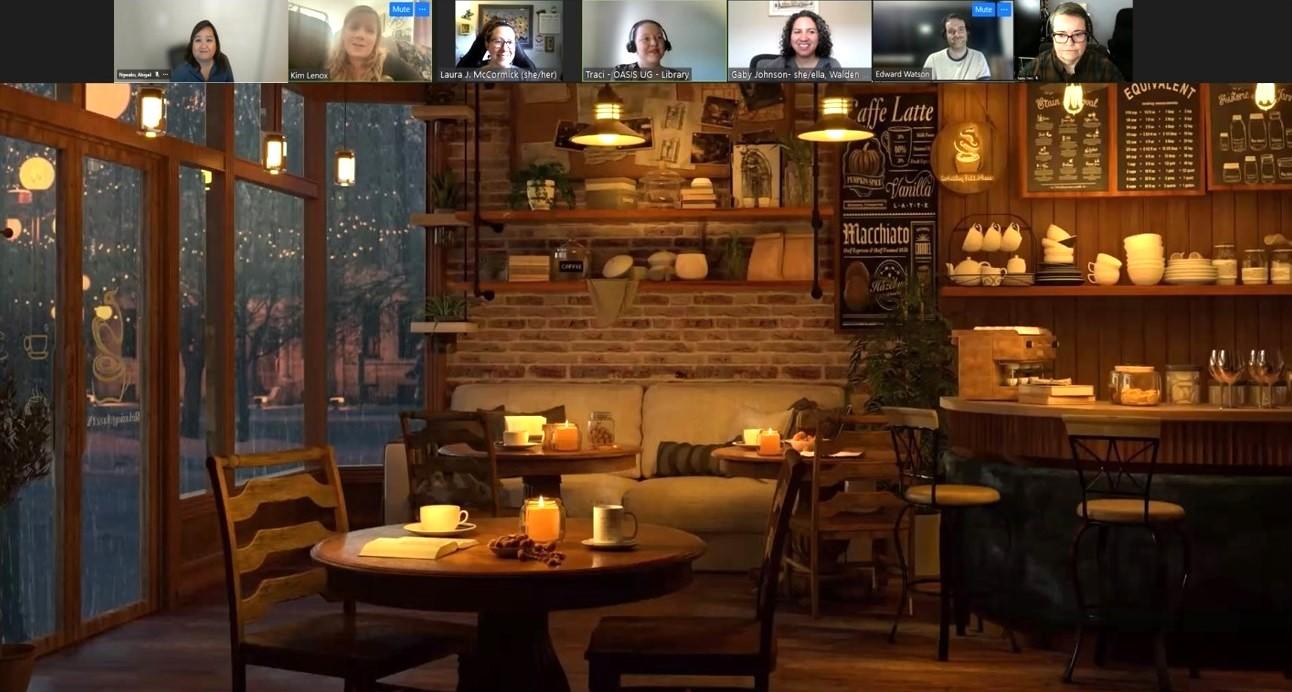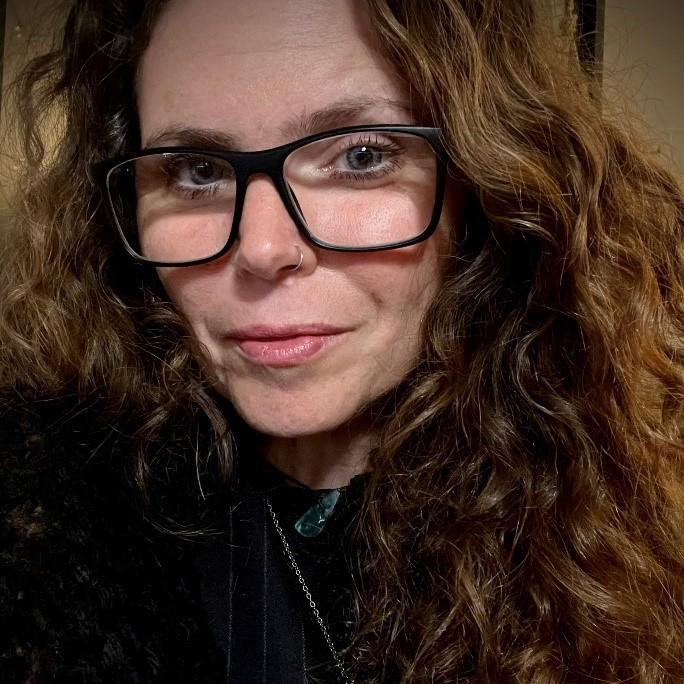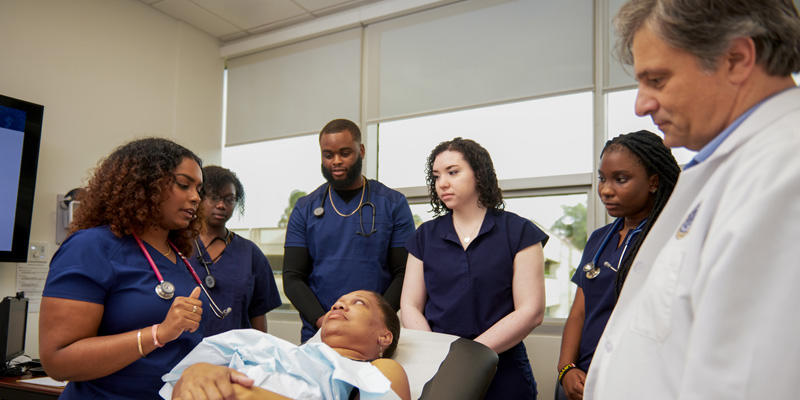Go behind the scenes of an immersive, low-pressure space where online students can relax, connect, and be themselves.
Coffeeshops are part of the landscape of college towns. They are gathering spots for students who want to study or socialize or both. More casual than the campus library. Less distracting than dorms or home.
But what if you’re an online student looking for an oasis?
For Walden University’s online undergraduate students, there’s Café Thrive. It’s a virtual space with the relaxed ambiance of a traditional coffeeshop. When you log in, you can almost smell fresh-ground coffee. The lighting is low. Candles seem to flicker on the tables. Yes, that is jazz you hear.
says Angelica Lohr, associate dean of undergraduate support in the Office of Academic Support and Instructional Services.
As a low-stress, drop-in meeting space for Walden’s adult learners, Café Thrive builds on the “third place” theory. Home and work are the first and second. A third place, according to sociologist Dr. Ray Oldenburg, is an informal space where people can be themselves. Third places are vital to communities, and community-building is a driver of student success.
Coffeeshop Banter and Crowd Sourcing
Café Thrive is typically hosted by two members of the Walden community—faculty or student support staff. They start with a hands-off approach. To keep the mood light, they might be sharing cat memes or telling dad jokes in the chat, knowing the power of humor to bring people together.
Dr. Laura McCormick is a faculty member in the School of Interdisciplinary Undergraduate Studies who often hosts Café Thrive. “In the online classroom, there’s a focus on academics and the professional side of the student,” she says. “Café Thrive treats the student as a whole person. That could include being a caregiver to a parent or a parent themselves.”
She continues: “Some students come just to hang out and not talk at all and do their homework or just listen.”
When students do have a question, the staff—and other students—jump in to help. Dr. McCormick recalls a student with a broken wrist who worried that because she struggled to type, it would be difficult to complete her online courses. Staff recommended that she contact Student Wellness and Disability Services. Students offered suggestions for screen readers and other software she could use to continue her studies.
“There’s a sense of community,” says Dr. McCormick. “We had one student who had been out of school for 20 years. She was very nervous and appreciated having other students to talk with about it in Café Thrive."
Café Thrive: Back of the House
From a technology standpoint, Café Thrive is video conferencing via Zoom. Students can attend anonymously and choose whether to turn on their webcam. The goal is for them to be comfortable, says Lohr. Personal touches like seasonal coffeeshop backgrounds and curated soothing music make it cozy and authentic.
What's the impact?
Lohr and Dr. McCormick plan to find out as co-principal investigators on a Riedel Research Grant for the Advancement of the Walden Learning Model. “Café Thrive: A Synchronous Undergraduate Community in an Asynchronous World” seeks to study the impact on student retention, with results available in 2025.
Opening the Doors to More Students
Café Thrive is currently for Walden’s undergraduate students. As it gains popularity, the university is considering rolling it out to other programs.
“We want to create spaces where our students feel like they belong. That makes education accessible, especially for people who may have felt at other institutions that academic spaces weren’t for them,” says Lohr. “Education should be for everyone.”
For more information, email the Adtalem Global Communications Team: adtalemmedia@adtalem.com.





